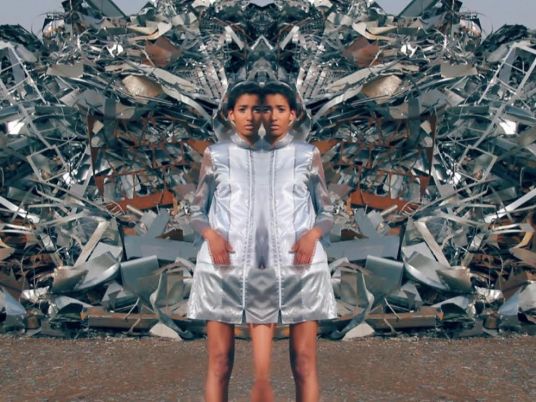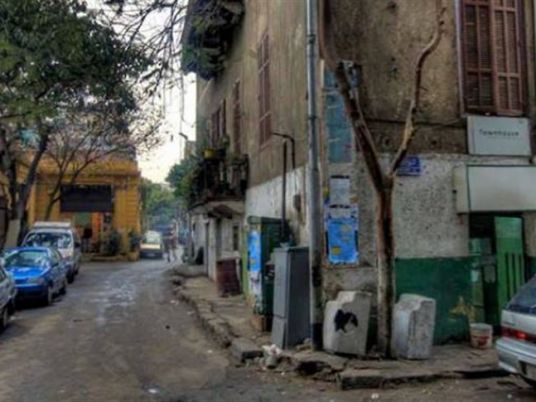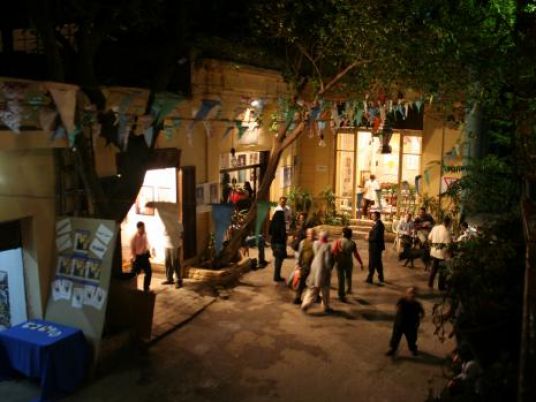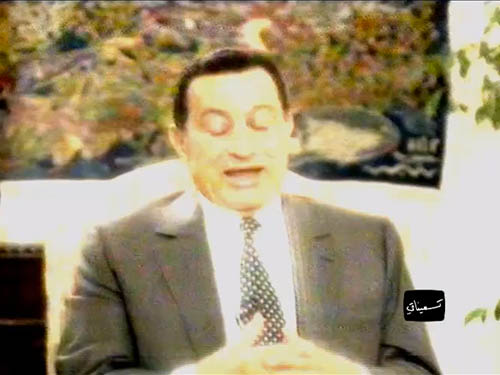A young boy runs through a busy London street, wearing a suit made entirely of trash. Egyptian screen legend Soad Hosni rolls around in bed, giggling, enjoying the embrace of an unidentified lover. A nun talks about the numerous martyrs that had been hung, burned and quartered ages ago in what has now become her neighborhood. An invisible male voice whispers the question, “How many women are there in the Koran as prophets of Allah?” before a second disembodied voice—this time female—rants about Kali, Isis and the “female archetype that has been written out of history,” concluding, “the pen is, P-E-N-I-S, mightier than the sword.” These are only a handful of scenes from the first few minutes of “The Edgware Road,” an experimental and, at times visually arresting, film resulting from a collaboration between the 65 participants of the Free Cinema School.
Based in London, the Free Cinema School exists as a “platform for an exchange of dialogues” and a “discourse around the concept of collaboration,” according to its two founders, Brad Butler and Karen Mirza. Graduating from the Royal College of Art in 1999, the pair did some curatorial work before becoming interested in independent film and how it functions as a medium. The Free Cinema School is a space equally devoted to film production, screenings, and discourse, and where attendees can “work with film as an idea and a medium,” Butler states.
For Mirza, the space also represents her interest in “the questions and notions of what the word ‘free’ means—being dependent or independent, freedom of speech, freedom to start a group,” as well as a starting point for analytical discussions on “all sorts of models of institutional frames.”
Despite one of the word’s possible meanings, the school does require a fee, although at £110 a year, it’s certainly closer to being free than any other film school or program out there. A year’s membership also grants applicants open access to the school’s facilities and equipment. Additionally, the Free Cinema School also holds regular workshops, where attendees exchange practical and theoretical ideas on a wide range of topics not necessarily limited to film. “We’ve held workshops to discuss politics, architecture and sound, among other things,” says Butler.
According to Butler, the idea for the Free Cinema School was also partly inspired by the increasingly competitive nature of London’s independent film scene. “The way of working, at least from my point of view, encouraged the idea of the ‘individual’,” Butler says, explaining that most burgeoning filmmakers feel the pressure to establish their own individual body of work and profile, as opposed to participating in an evenly collaborative effort. The Free Cinema School would eventually become a form of “resistance to that attitude.”
The artists also developed a fascination with the idea of authority, especially in regards to the hierarchy of traditional filmmaking. It was while contemplating the commonly accepted roles of directors, producers and performers that Butler and Mirza decided that their school would offer the “type of education that wouldn’t require an authority figure.” Subsequently, the school’s student population quickly grew to become a truly diverse body, including children, adults, “people who’ve never actually held a camera before, as well as individuals with over 20 years of filmmaking experience,” Mirza says.
Far from being your typical film school, the Free Cinema School thrives on concepts that go against the grain of what Butler calls “industrial filmmaking”—such as the beliefs that “no film is too personal, size is irrelevant, and perfection is not the aim,” Butler reads off a list.
For better or worse, that last belief is made exceedingly clear with the samples of “The Edgware Road” which Butler and Mirza screened to a small audience at Townhouse Gallery on Wednesday evening. The combined, individual efforts of amateurs and professionals of all age groups, “The Edgware Road” is an absolute mess—exactly as it was meant to be. As Butler proudly puts it, “you can’t tell apart the segments [of the film] made by a child from those made by an experienced filmmaker.” While that may be an unusual way to praise the results of your students’ filmmaking efforts, it’s only appropriate in this case, given the ideology on which the Free Cinema School is based.
“We spent eight weeks making individual scenes for an imagined film, not knowing what [the other filmmakers] were working on,” Mirza recalls the process of making “The Edgware Road”—a montage of largely plotless cinematic excursions, analyses and experiments revolving around the eponymous street, which dates back to Roman times and has now become the backbone of an ethnically diverse neighborhood—a diversity reflected in the group of filmmakers, as well as their finished product, edited over the span of two days. “We would hold impromptu film screenings and show rushes to each other—it was that kind of energy, an inside-out backwards approach to filmmaking.”
“It’s more of a document than an actual film,” explains Khaled Abdalla, the Scottish-born actor famous for his starring role in “The Kite Runner,” the film adaptation of author Khaled Hosseini’s acclaimed novel. Abdalla served as one of the producers of “The Edgware Road” and was also present at Townhouse on Wednesday night to discuss the experimental feature.
As with any experiment, the results weren’t entirely satisfying. “We weren’t happy with the way all these different voices came down to just a few who had final say,” explains Mirza, adding that this is something she and Butler will definitely keep in mind for the school’s next project.
Despite its flaws—which Butler, Mirza and Abdalla are all quick to acknowledge—“The Edgware Road" does present, at the very least, an intriguing concept, one that might even evolve into a truly innovative exploitation of the possibilities of film, depending on where Butler and Mirza lead the next generation of Free Cinema School students. For now, though, it remains, as Abdalla recalls, “a wonderful and totally exceptional experience. We’ve embraced the fact that at every turn we were dealing with unknowns.”
“It was completely anarchic,” Abdalla smiles. “We had to find moments of logic to guide us.”




